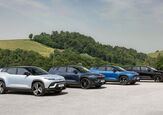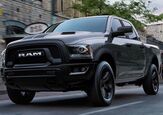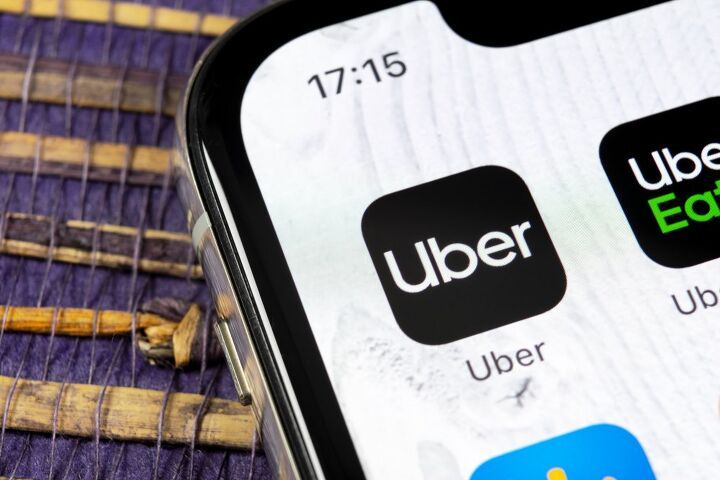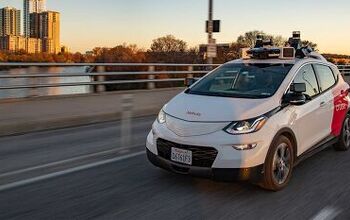Slammed by the NTSB, Uber Now Promises to Make Autonomous Test Data Available to Public

Uber Technologies promised to make the safety information related to its self-driving program more widely available following some fairly harsh criticism from the National Transportation Safety Board (NTSB).
The agency had faulted Uber with some amount of responsibility after conducting its investigation into the fatal testing accident that took place in March of 2018. The incident, which took place in Tempe, AZ, involved an inattentive Uber safety operator who struck and killed a pedestrian who was attempting to cross a poorly lit roadway — creating a national backlash against self-driving vehicles and a push toward ensuring higher levels of safety.
Police say the vehicle was operating autonomously for testing purposes at the time of the collision. Following months of investigation, the NTSB decided in 2019 that driver failed to act in a safe manner due to being distracted by their cellphone. Uber was also faulted for possessing inadequate safety risk assessment procedures, ineffective oversight of vehicle operators, and a general absence of mechanisms to address complacency by operators as the cars drove themselves.
Tuning out is one of the largest issues with advanced driving systems today, with mounting research suggesting the technology actively makes most people worse drivers. Yet the prevailing industry wisdom has dictated that any shortcomings will be addressed once self-driving technology reaches perfection and cars stop crashing entirely. It’s a bold promise — and one that’s likely impossible to deliver — but it was sufficient for Congress and the Department of Transportation to allow business to test autonomous vehicles with only the faintest whiff of regulatory oversight.
It’s something we’ve brought as a potential problem up before. However, it should be noted that China has little to no regulation regarding self-driving or artificial intelligence (including alleged intellectual property theft), with the United States growing concerned that the situation gives it a competitive advantage in the battle for developing the latest and greatest technologies — automotive or otherwise.
But the NTSB and other safety agencies are single minded and will continue to push the industry to prove the decisions they are making aren’t endangering anyone. If it doesn’t save lives, it’s unlikely to appear on their radar. Many have encouraged industry players to make all their test data public to promote transparency and assuage any fears regarding the technology. Uber claims its updated reporting does just that.
“We support the idea of transparency and making the public understand what we do,” Nat Beuse, head of safety at Uber’s Advanced Technologies Group, told Automotive News in an interview.
From AN:
In the document, Uber touts “enhancements,” including the public release of a “Safety Case Framework” that it pledges to make open-sourced for peer review. The company also details new internal safety management procedures and the establishment of an independent Safety and Responsibility Advisory Board.
So far, 23 companies have made their self-driving safety assessments public, according to NHTSA, including Apple Inc., Ford Motor Co., General Motors, Lyft Inc., Mercedes-Benz AG, Toyota Motor Corp., and Waymo. Beuse, a former NHTSA associate administrator for vehicle safety research, said Uber is among a handful that have updated its voluntary disclosures.
Not everyone is enthralled with the progress, however. Numerous consumer advocacy groups have faulted government agencies for being too soft on firms trying to perfect vehicular autonomy, as well as the entire concept of voluntary reporting.
“It’s nice that Uber has decided this is the right time to update its so-called report, but a consumer-focused agency would have long ago mandated all driverless vehicle manufacturers regularly submit useful safety details regarding their public road tests,” said Jason Levine, executive director of the Center for Auto Safety.
[Image: BigTunaOnline/Shutterstock]

A staunch consumer advocate tracking industry trends and regulation. Before joining TTAC, Matt spent a decade working for marketing and research firms based in NYC. Clients included several of the world’s largest automakers, global tire brands, and aftermarket part suppliers. Dissatisfied with the corporate world and resentful of having to wear suits everyday, he pivoted to writing about cars. Since then, that man has become an ardent supporter of the right-to-repair movement, been interviewed on the auto industry by national radio broadcasts, driven more rental cars than anyone ever should, participated in amateur rallying events, and received the requisite minimum training as sanctioned by the SCCA. Handy with a wrench, Matt grew up surrounded by Detroit auto workers and managed to get a pizza delivery job before he was legally eligible. He later found himself driving box trucks through Manhattan, guaranteeing future sympathy for actual truckers. He continues to conduct research pertaining to the automotive sector as an independent contractor and has since moved back to his native Michigan, closer to where the cars are born. A contrarian, Matt claims to prefer understeer — stating that front and all-wheel drive vehicles cater best to his driving style.
More by Matt Posky
Latest Car Reviews
Read moreLatest Product Reviews
Read moreRecent Comments
- Kwik_Shift_Pro4X Hard pass.
- Lou_BC By the author's own admission, "It’s a bit of a shame that I didn’t have a chance to take the 2023 Ford F-150 Raptor R I tested off road", why post photos of it offroad?
- SilverCoupe My wife had wanted one of these, but I influenced her to get a "big" car instead, a Mini Cooper S. I found the Abarth too rough riding, though the one we test drove had had its suspension modified by its owner.
- SPPPP I am not thrilled for the inevitable false positives. Though that's certainly better than false negatives in the abstract - but people are supposed to be paying attention anyway. Seems like one more step toward a robotic, commoditized future. Bleh.
- SPPPP I like it, though price seems a bit high, especially for an automatic. But it's in CA, so it's probably par for the course.


































Comments
Join the conversation
As a full time ride share driver, I sleep comfortably knowing that this tech has no chance of displacing me anytime soon.